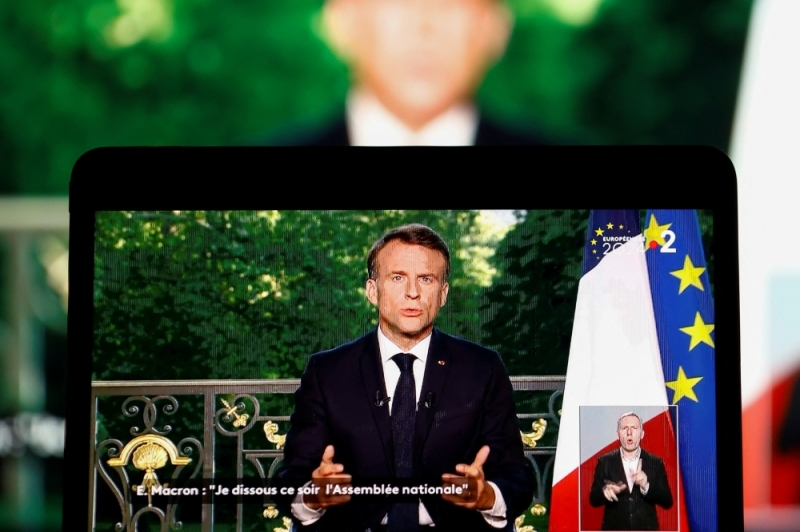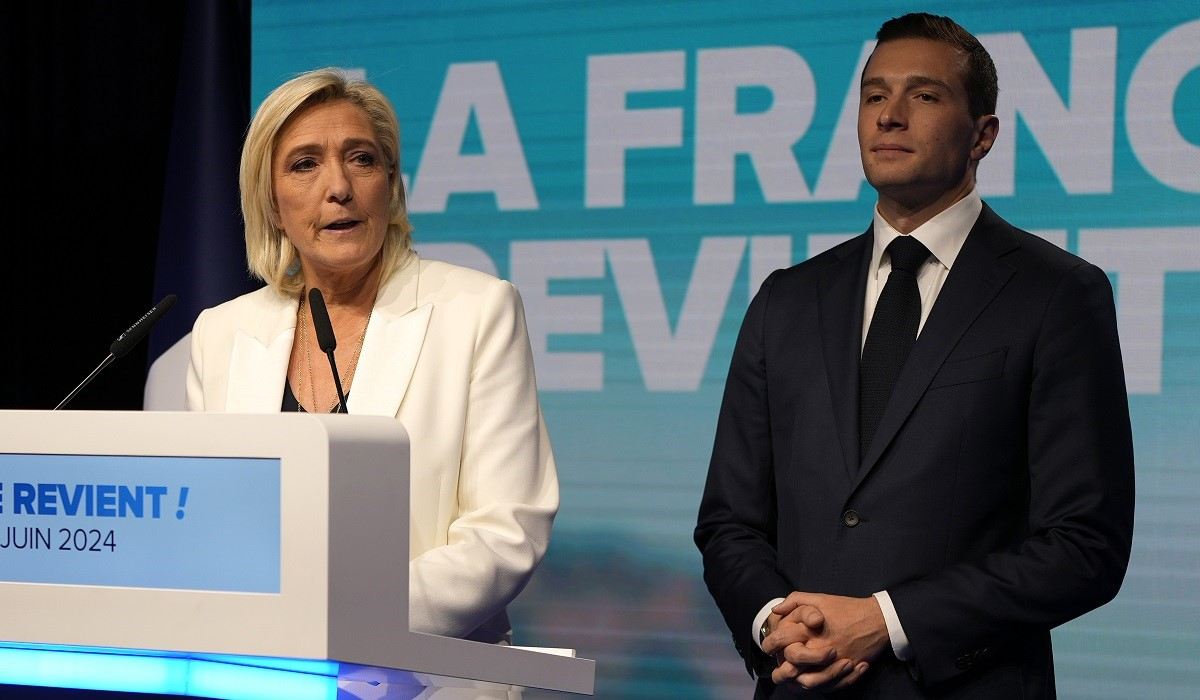
French President Emmanuel Macron has announced the dissolution of the lower house of parliament and called for new general elections following a significant defeat by the far-right in the European elections. The legislative elections are set to take place in two rounds on June 30 and July 7, sending French voters back to the polls to choose new lawmakers.
The decision comes in response to the far-right National Rally party, led by Marine Le Pen, achieving a substantial lead in the European Union’s parliamentary elections. Early projections show the National Rally securing around 31%-32% of the vote, more than double the approximately 15% garnered by Macron's pro-European Renaissance party. This result represents a historic setback for Macron’s centrist movement, which has been a strong advocate for Europe-wide initiatives to bolster defense and industrial policies.
Macron, who still has three years left in his presidential term, was not a candidate in the EU elections. However, the outcome has prompted him to take decisive action. In a televised address, Macron acknowledged the gravity of his decision to dissolve the National Assembly, stating, "This is a serious decision, but it demonstrates my confidence in our democracy. I believe in allowing the sovereign people to have their say."
He further added, "In the next few days, I will outline what I believe to be the right direction for our nation. I have heard your message, your concerns, and I will not leave them unanswered."
The recent legislative elections in 2022 saw Macron’s centrist party winning the most seats but losing its majority in the National Assembly, which forced lawmakers into complex political maneuvering to pass legislation. The upcoming snap elections could potentially alter the political landscape significantly, with the risk of further empowering the far-right.
Marine Le Pen, who has been a prominent challenger to Macron in the past two presidential elections, welcomed the announcement. Le Pen's party has capitalized on issues such as immigration and national sovereignty, resonating with a significant portion of the electorate. "We’re ready for it," Le Pen declared. "We are prepared to exercise power if the French people place their trust in us in these future legislative elections. We are ready to turn the country around, defend the interests of the French, end mass immigration, and prioritize the purchasing power of our citizens."

Jordan Bardella, the National Rally’s lead candidate in the EU elections, campaigned on limiting the free movement of migrants, implementing national border controls, and dialing back EU climate regulations. While the party no longer advocates for leaving the EU, it aims to weaken it from within.
An official from Macron’s office justified the dissolution of the National Assembly by highlighting the "historic score of the far-right" and the existing "parliamentarian disorder." The official, speaking anonymously, emphasized, "You’re never wrong when you give the people a say."
The EU election results also indicate a resurgence of the Socialist Party, which secured about 14% of the vote. The Socialists campaigned on more ambitious climate policies and protections for European businesses and workers. Reacting to Macron’s announcement, far-left politician Francois Ruffin called on all left-wing leaders, including the Greens, to unite under a single "Popular Front" banner. "To avoid the worst, to win," Ruffin wrote on social media.
France's upcoming elections will be crucial in determining the composition of its 81 members of the European Parliament, which consists of 720 seats in total. The political shifts brought about by these elections could significantly influence France's domestic and international policies, particularly in relation to its role within the European Union.
As the country prepares for this critical electoral process, the stakes are high for both Macron and his opponents. The results will not only shape the immediate future of French politics but also reflect broader trends in European political dynamics.











